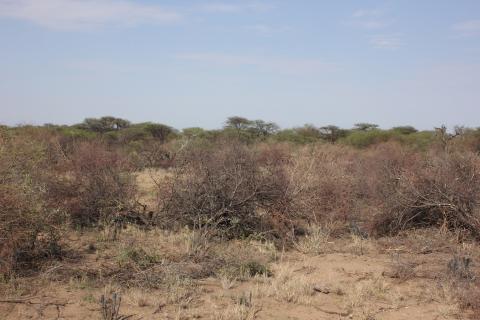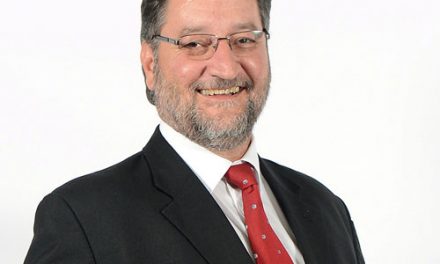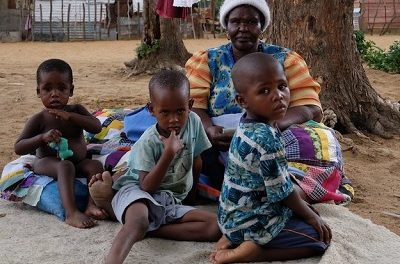
Replacing hard coal in Germany with bush wood from Namibia?

By Bertchen Kohrs, Earthlife Namibia.
The city of Hamburg is eager to use Namibia’s encroacher bush for electricity generation in an effort to speed up the phase-out of coal combustion. On the initiative of GIZ, the Ministry of Environment, Climate, Energy and Agriculture (BUKEA) of Hamburg is examining the replacement of hard coal with bush wood from Namibia. Opposition to this undertaking by prominent environmental and climate protection associations is very strong.
A Memorandum of Understanding (MoU) of June 2020 states: “The governments of Namibia and Germany agreed to cooperate within the Bush Control and Biomass Utilization project, being implemented by GIZ in collaboration with the Namibian Ministry of Agriculture, Water and Forestry. It is a national objective to utilize this biomass within a sustainable manner, under a targeted value addition approach, to benefit the local economy through value addition, job creation, and advancing export opportunities.”
Why bush encroachment is bad and what are the reasons for bush encroachment?
Bush encroachment is a real challenge for Namibia’s agriculture and needs to be addressed urgently. According to NUST, an area of 30 to 45 million hectares (300,000 to 450,000 km2) is affected, which corresponds to about 50 percent of Namibia’s entire land. Bush encroachment severely reduces the carrying capacity of the pastureland, which means a significant economic loss for the farmers.
The phenomenon of bush encroachment can be attributed to several factors. Poor management of pastures through overstocking is undoubtedly one of the causes. Furthermore, the pastures are no longer burnt as they used to be, with many of the bushes falling victim to the fire.
Scientists also blame the rapid growth of the bushes on the increasing CO2 content in the atmosphere. As CO2 levels rise, woody vegetation gains an advantage over grasses.
The effect of bush encroachment on the climate
While bush encroachment is a negative factor for agriculture, it is a major CO2 sequester and therefore mitigates climate change.
The misguided opinion is widespread that burning bush wood is climate-neutral because it does not come from fossil sources; instead, the CO2 released during burning was previously absorbed from the atmosphere through photosynthesis. In 2018, 800 international scientists confirmed in an open letter that burning fresh wood is neither carbon-neutral nor sustainable. The regrowth of the bush takes many years, however, the reduction of greenhouse gases must take place now, if we want to reach the goal of the Paris Climate Agreement.
It is not expected that the re-growing grass can reach the extent of sequestration of the bushes. This is simply because the grass is eaten by domestic and wild animals and cannot grow back in sufficient quantities, especially in years of prolonged drought. We always have to bear in mind that Namibia is an arid to semi-arid country where droughts are normal occurrences and good rainfalls are a blessing.
Intensive use of pastures is harmful for the water balance and the local and regional climate because of the large amount of drinking water used and the increased soil evaporation caused by animal husbandry. The shrubs partially prevent surface runoff of rainwater and contribute to faster water absorption and water storage in roots, branches and leaves. The transpiration of the leaves causes a positive climate buffer function by inhibiting or preventing excessive heat development and dehydration of the soil.
The results of the study ‘Greenhouse Gas Assessment of Bush Control and Biomass Utilization in Namibia’, commissioned by GIZ and submitted by UNIQUE (consultancy for forest management 000and sustainable land use) in December 2019, have been sharply contested by several scientists.
The UNIQUE study argues that after de-bushing, the landscape binds more CO2 than before.
The feasibility study ‘Road Map to Biomass Industrial Park’, also commissioned by GIZ, was completed by IfaS (Institute for applied Material Flow Management) of the Trier University of Applied Sciences in November 2020. Results of the UNIQUE study were copied without criticism.
A peer review report by Prof. Dr. Rabenstein, HafenCity University Hamburg, from March 2021 revealed over a dozen errors in the two GIZ studies. Following the correction, it shows that burning bush wood from Namibia in Hamburg would be much more harmful to the climate than the combustion of hard coal. A broad alliance of environmental associations has therefore demanded that these seriously flawed studies be withdrawn immediately.
Why not to export raw material bush wood to Germany?
The review also concludes that it is not necessary to export the raw material bush wood in order to stop bush encroachment. The biomass can be used in Namibia itself in such a way that value creation and new jobs benefit the country more than the export of wood, which constantly extracts minerals from the soil. Bush wood can be used to generate electricity, as NamPower plans to do. Many materials can be produced locally that currently have to be imported into Namibia. The GIZ project should rather support this development instead of simply exporting raw materials. All options to use the biomass locally, to create sustainable value chains, to train workers, and to create jobs in Namibia should be explored with the help of GIZ.
Why does Germany want to import raw material bush wood? Who benefits?
The IfaS study portrays the export project in the most delightful hues and gets carried away with a statement, which was removed in a new edition of the study due to numerous protests.
In answer to the question ‘who benefits from the project’?
IfaS declares “Germany is a resource poor country and it is not in a position to fill its supply gap with resources from its own country, such as biomass itself. With Namibia there is the possibility of a strategic partnership to close the future supply gap with biomass. At the same time, Germany is participating in investing in the Namibian infrastructure and promoting its prosperity due to the industrial complexes created by this project. From the time of the colonialism of Germany in Africa, a chance arises for Germany to be able to heal the damages related to historical events.”
It is a sign of colonial arrogance to speak of ‘healing the damages relating to historical events’ while the demands of the descendants of the genocide are not treated with all seriousness by the German government. The presumptuous passage of ‘healing the damages’ is reinforced by pointing out that this is a deal for Germany; it can in no way be understood altruistically as compensation for past mistakes. There is no mention of including the descendants of the Ovaherero and Nama.
Namibia is grateful for endeavours from Germany or German businesses that contribute to building the infrastructure and production in our country in a sustainable way. However, energy politics and responsibility for reparations are two very different themes and have nothing to do with each other. The author of the study Prof. Dr. P. Heck proposes a business deal that is benefiting ‘resource poor’ Germany by exploiting valuable resources of Namibia. This reproduces a supply regime once established in the gruesome times of colonialism. Furthermore, describing and justifying this procedure as a way of ‘healing’ is not only hypocritical but also a slap in the face of all Namibians who are still suffering from the genocide and exploitation during the German colonial time. Veiling business interests under the cover of ‘healing’ the past is completely unacceptable and will in the end lead to the opposite.
Does exporting bush wood to Germany create jobs and value addition in Namibia?
Furthermore, the project, as presented in the feasibility study, creates neither a value chain, nor a significant number of jobs, nor local profits. The MoU emphasises local value addition and job creation, among other things. Unfortunately, Namibia exports valuable raw materials that are then processed in other countries instead of creating a value chain locally. Pelletising bush wood can hardly be considered as value addition.
Given the high unemployment rate in Namibia, the creation of jobs must be an overriding priority. The large quantities of bush wood required by Germany can only be harvested by fully mechanised techniques to be economically feasible. State-of-the-art machinery will be required to do the job, which will probably have to be imported from Europe. Only a few trained workers are necessary to operate these machines. The promise of GIZ of creating local value and many jobs is deliberately misleading. In addition, great care must be taken to achieve targeted bush thinning. Working with bulldozers cannot assure a sustainable harvest.
In conclusion, environmentally sound methods must be found to restore currently bush encroached former grassland savannah to a sustainably productive condition, be it on Communal Land, in Freehold Tenure or on State Land. This must be complemented by the creation of value addition for harvested bush wood and creation of employment on local or national level. Only after thorough and independent research, in which all relevant factors must be taken into account, should a decision be made, in Namibia and not by other interest groups. Namibia’s developmental interest must be first priority.











































